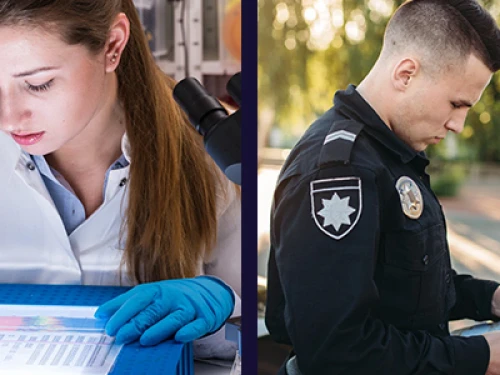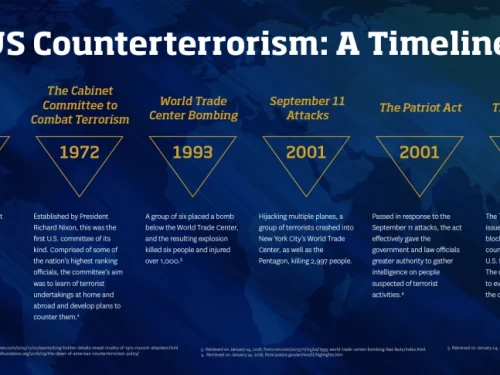Global Security
Security threats are evolving, and understanding global security is more critical than ever. Kent State’s blog explores topics like criminology, criminal justice, counter-terrorism, and the ongoing debate over encryption and law enforcement. Whether you’re curious about the difference between criminology and criminal justice or how communication shapes careers in the field, these insights provide a deeper look into the complex world of global security.
Related Blog Posts
In today’s interconnected world, global security threats are becoming increasingly complex and multifaceted. From cyberattacks and terrorism to transnational crime and geopolitical conflicts, security professionals must be equipped with the skills and knowledge to navigate an evolving landscape. As these challenges continue to grow, criminology professionals play a crucial role in developing strategies to combat emerging threats and protect communities on both national and international levels.
The field of criminology and criminal justice offers a wide range of career opportunities, from protecting communities to supporting victims and addressing global security challenges. Whether you’re looking to advance in law enforcement, work in international security, or advocate for victim rights, choosing the right concentration in your graduate studies is a critical step toward achieving your career goals.
Determining what degree field you’d like to explore more, means learning the subtle nuances of that degree. Case in point, what is the difference between criminology and criminal justice? These two terms seem similar in use because the career paths from both can overlap.
Whether you’re aware of it or not, you likely use encryption daily. Sending emails or text messages, using fitness trackers that communicate with apps on your phone, accessing an online banking portal and retrieving photos or files from cloud storage all take advantage of the security features of encryption. But there’s an ongoing debate about whether tech companies should be held legally responsible for de-encrypting devices seized by law enforcement.
To someone outside of either field, criminal justice and criminology may sound like two names for the same thing. It’s true there is a significant amount of overlap between criminology and criminal justice — but they are two distinct, if related, fields.
“Terrorism” is a term that holds strong connotations in the United States and across the world. If the Oxford Dictionary defines terrorism as “the unlawful use of violence and intimidation, especially against civilians, in pursuit of political aims,” then we can define counter-terrorism as the lawful protection of civilians against violence and political persecution.
Criminology is a branch of sociology that focuses on the causes, effects and social impact of crimes. In many ways, the social aspect of criminology defines the field. For the criminologist, the ability to shift between conveying information with authority and listening carefully with compassion lies at the heart of communication in criminal justice. No matter what role you fill in this field, communication—both written and oral—is the number one skill you can polish in preparation for a criminology career.








